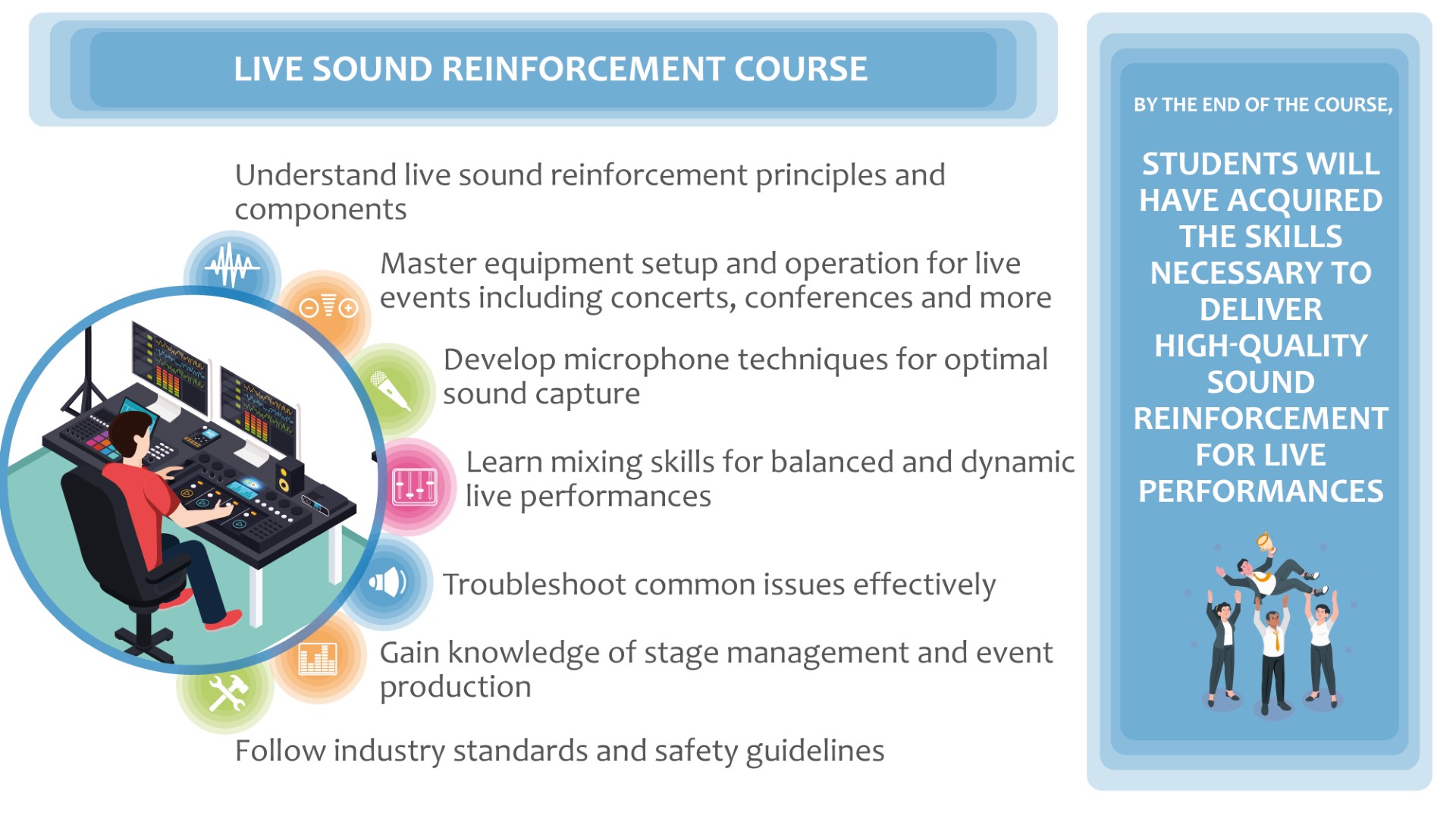
In this course, students will learn the essential theory and practical skills necessary to work as a sound engineer in a live event setting. They will learn about the theory of audio, the concept of speakers and wiring, mixing console operation (analogue and digital), networking audio, and the roles and responsibilities of FOH and monitor sound engineers.
1. Introduction to Live Sound Production
– Overview of the live sound production industry and its various roles
– Introduction to the basics of sound waves and audio theory
2. Sound Reinforcement Systems
– Understanding the concept of sound reinforcement systems
– Understanding the different types of speakers and how they work
– Learning how to properly wire a sound system
3. Mixing Consoles
– Introduction to mixing consoles (analogue and digital)
– Understanding the signal flow and routing of a mixing console
– Learning how to set up and operate a mixing console
4. Networking Audio
– Understanding the concept of digital audio networking
– Learning how to set up and configure a digital audio network
5. FOH Sound Engineering
– Understanding the role and responsibilities of a FOH sound engineer
– Learning how to set up and mix a live sound event from the FOH position
6. Monitor Sound Engineering
– Understanding the role and responsibilities of a monitor sound engineer
– Learning how to set up and mix a live sound event from the monitor position
7. Troubleshooting and Maintenance
– Learning how to identify and troubleshoot common live sound issues
– Understanding how to maintain and care for live sound equipment
By the end of the course, students will have gained a comprehensive understanding of the live sound production industry, including the theory of audio, the concept of speakers and wiring, mixing console operation (analogue and digital), networking audio, and the roles and responsibilities of FOH and monitor sound engineers. They will also learn how to troubleshoot and maintain live sound equipment.
